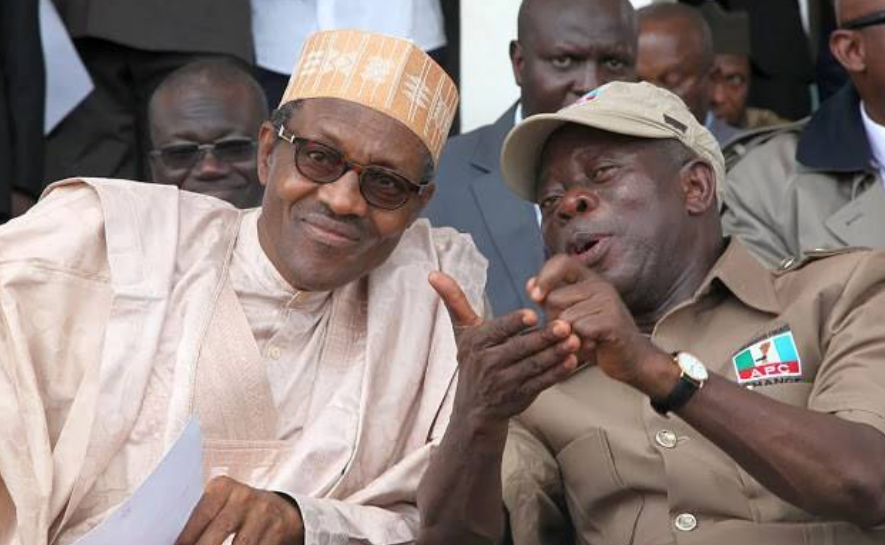By Ehichioya Ezomon
It’s 109 days from today, Monday, October 29, 2018, to the general elections, beginning with the presidential contest at 8am (Lagos Time) on Saturday, February 16, 2019. Meaning that the ruling All Progressives Congress (APC) has barely three and half months (107 days – till Thursday, February 14) to convince the voters why they should renew its mandate for additional four years in power.
The party can do this by showcasing its government’s achievements in tandem with its stated objectives and promises to Nigerians. On Wednesday, October 24, the Secretary to the Government of the Federation, Boss Mustapha, put this expectation in perspective.
At a dinner for youth political appointees at the Presidential Villa, Abuja, Mustapha said: “We went into the 2015 elections with promises, but we will go into the 2019 elections with our scorecard.”
The consideration of the set goals, vis-a-vis what the scorecard reveals on the ground, will determine the grade – pass or failure – that the electorate will award the party at the elections, particularly in the presidential balloting.
It doesn’t matter the margin of victory, if the APC is voted back into power. The government it controls would have shown it was able to navigate the difficult periods since May 29, 2015, defined by drastic drop in global oil prices, and low-earned revenue; followed by a 20-month recession that’s only “technically exited,” with continuing worries about a possible relapse into a worse form of economic crunch.
While the President Muhammadu Buhari administration still has a breather, in governance, to reshape the minds of sceptics about its performance so far, the platform on which it gained power has no such luxury.
Actually, as at press time, the APC seemed in tatters, aftermath of the primaries for executive and legislative portfolios at the national and state levels. Some 70 lawmakers, who lost their tickets at the primaries, had petitioned the party’s appeal panel that subsequently cleared only six candidates. To demonstrate their anger, scores of the “unsuccessful aspirants” had threatened to defect to other political parties.
The crisis is such that President Buhari reportedly told the party National Chairman, Adams Oshiomhole, to “fix this mess.” If the president used the exact phrase, it shows the magnitude of the problems in the APC, which, by now, should start to visualise its “triumph” in 2019.
Instead, there’s a huge distraction from aggrieved and dissatisfied party members across the states, with many daily storming Abuja to “occupy” the national headquarters of the APC, and intimidate the party hierarchy.
The protesters have two main demands: The National Working Committee (NWC) should rectify alleged anomalies in the governorship and legislative primaries; failing which Oshiomhole should resign his position forthwith.
Obviously, his strategy backfired while trying to ensure a level-playing field for all aspirants through direct primaries, and he’s slammed by both the powerful sitting/former governors that accusingly imposed “anointed” candidates, and those they “supplanted,” notably in Zamfara, Ogun, Imo and Rivers States.
But enough of this sabre-rattling, finger-pointing and shadow-boxing that do not bode well for either side. These times call for compromises and not confrontation; unity and not division; mutuality and not mistrust; and accommodation and not rejection.
By the provisions of the relevant laws and guidelines, the APC has an opportunity to substitute candidates, whose names had been sent to the Independent National Electoral Commission (INEC). The party has until November 2 to effect the “needed” changes in the governorship and state legislative positions, provided that those to replace the substituted candidates participated in all processes of the primaries. The exception being the deputy governor’s position, as the hand-picked candidates don’t go through the primaries.
So, in states where there’re disputes over the choice of governorship candidates, both sides should come to a mutually-agreed settlement under the superintendence of the NWC and APC chieftains.
For the position of governor from two parallel primaries, one camp should produce the “acceptable” candidate, and the opposing faction the running mate, unless they are from the same senatorial district. In that case, the latter should be given the choice to nominate the deputy governorship candidate.
For instance, in Zamfara, Governor Abdullaziz Yari and Senator Kabiru Marafa have to decide which camp should produce the candidate and deputy candidate, respectively. Ditto for the camps of Governor Ibikunke Amosun and former Governor Segun Osoba in Ogun; Governor Rochas Okorocha and Senator Hope Uzodima in Imo; and former Governor Rotimi Amaechi and Senator Magnus Abe in Rivers.
And for the legislative positions, the same spirit of “give and take” should prevail, with the consent of those to be substituted sought, and achievable and “satisfactory appeasements” worked out for them. Former Senate President, Ken Nnamani, spoke about the “conflicts” from the primaries, and APC’s efforts to “bring everybody together.”
“We are not asking anybody to go to hell; we are asking them to come together… We are still working on appeasing a number of people so that we can be happy. APC is a national party and we should do everything to integrate our people, so that we can make progress,” Nnamani told State House correspondents after a meeting with President Buhari on Friday, October 26.
With an open mind, and genuine intention to solve the rather intractable problems, the APC should go into the 2019 elections as a united family poised to retain power. Otherwise, it would be a long and lonely night on Election Day!
* Mr. Ezomon, Journalist and Media Consultant, writes from Lagos, Nigeria.



